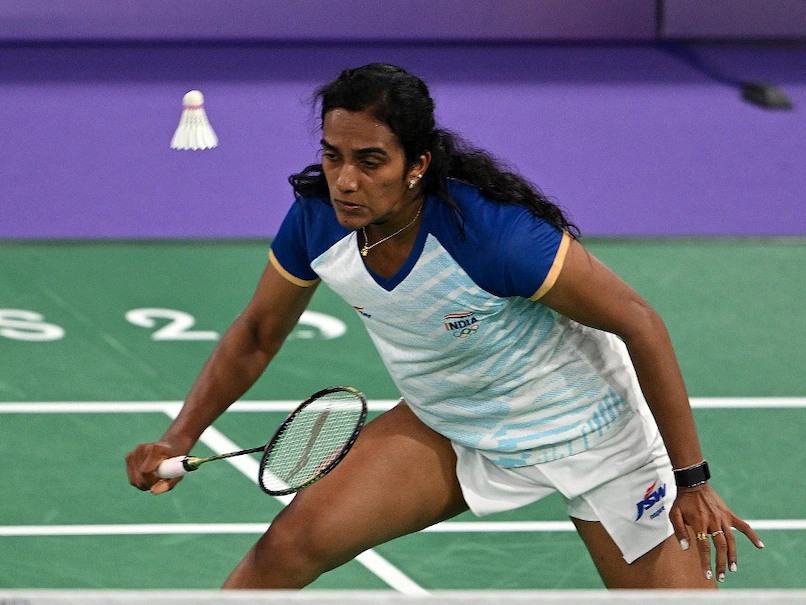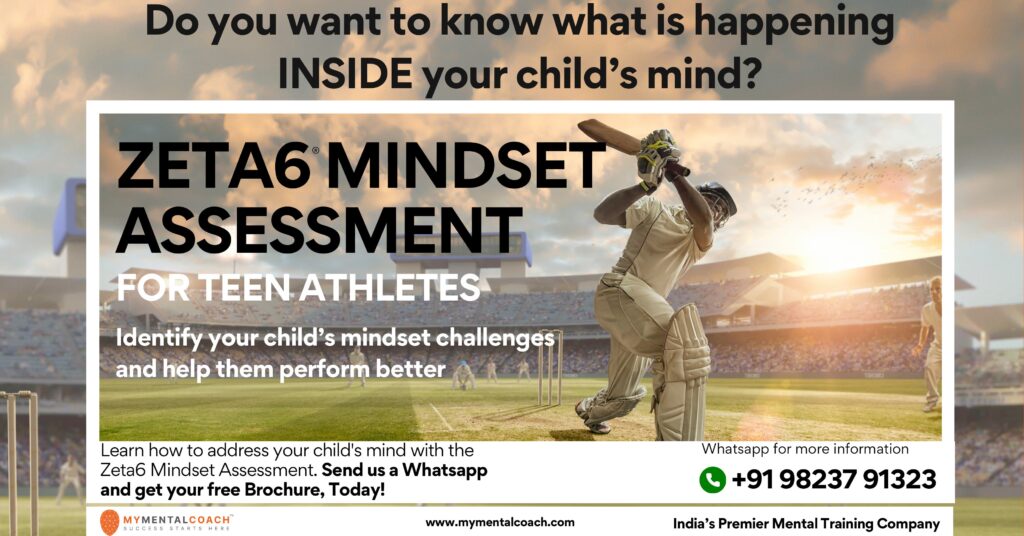PV Sindhu, a star Indian badminton player, perfectly exemplifies strong self-esteem. She dominated the group stage at the Tokyo Olympics and reached the semifinals, only to fall short. But Sindhu’s story continues.
She won the bronze medal, demonstrating remarkable resilience and self-esteem. Thus, she became the first Indian woman to win two Olympic medals.
Why do you think she succeeded? Did she have any supernatural ability?
MyMentalCoach and many more Sports Psychologists believe this ability to bounce back from setbacks is a mark of mental toughness and robust self-esteem, a crucial quality for athletes.
In this article, we’ll delve into sports psychology to explore how athletes can build self-esteem and mental toughness brought to you by MyMentalCoach, taking inspiration from champions like PV Sindhu.
What is Self-esteem in Sports Psychology?
In sports, where performance hinges on a delicate balance of physical strength and mental fortitude, self-esteem emerges as a crucial factor. But what exactly is it, and how does it impact an athlete’s journey?
Self-esteem, in the context of sports psychology, refers to an athlete’s overall evaluation and acceptance of themselves, encompassing their abilities, worth, and competence in their chosen sport. It’s not just about winning, but about the inner belief in one’s potential and the ability to navigate challenges gracefully.
“Self-esteem is the foundation of every athlete’s success. When you believe in your ability, your body follows, and limits turn into possibilities.”
How Does Self-esteem Impact Performance?
Imagine two athletes with identical physical capabilities. One exudes confidence, believing in one’s skills and attributing setbacks to learning opportunities. The other wrestles with self-doubt, questioning their worth and fearing failure. Who do you think will perform better under pressure?
Research suggests a strong correlation between positive self-esteem and athletic performance. It influences:
- Motivation:
High self-esteem fuels the drive to train, compete, and push boundaries.
- Anxiety Management:
Athletes with strong self-belief are better equipped to handle pre-game jitters and stay focused.
- Resilience:
They bounce back from setbacks quicker, attributing them to learning experiences rather than personal failures.
- Goal Setting:
They set ambitious, realistic goals, believing they can achieve them.
Let’s look at a few examples of self-esteem in action:
- Scenario 1:
A young gymnast misses a routine during a competition.
- Low Self-Esteem:
“I’m terrible! I’ll never be good enough.” (Leads to discouragement and potential quitting)
- High Self-Esteem:
“I made a mistake, but I’ll analyze it and practice harder next time!” (Promotes resilience and improvement)
- Scenario 2:
A basketball player faces a crucial free throw.
- Low Self-Esteem:
“What if I miss? Everyone will judge me.” (Increases anxiety and lowers chances of success)
- High Self-Esteem:
“I’ve practiced this shot thousands of times. I trust my ability.” (Reduces anxiety and promotes focus)
Watch this video titled, “Become a CONFIDENT athlete | Sports Psychology and Neuroscience show you how” to understand the link between confidence and peak performance from a neuroscience point of view.

What are the 5 Tips for Building Self-esteem for Athletes?
1. Gratitude Goals
Instead of focusing solely on performance goals, incorporate weekly gratitude goals. Write down 3-5 things related to your sport (e.g., “grateful for a supportive coach,” “grateful for the feeling of pushing my limits”) and actively reflect on them. This shifts the focus from external validation to appreciating the journey and your effort.
2. Visualization with a Twist
Standard visualization involves picturing yourself succeeding. Add a layer of mental toughness by also visualizing yourself overcoming challenges. Imagine handling pressure, bouncing back from setbacks, and staying calm under fire. This strengthens your mental preparation for difficult situations.
3. The “What If?” Challenge
When self-doubt creeps in, flip the script with the “What If?” challenge. Instead of asking “What if I fail?”, ask “What if I succeed?” and “What if I use this challenge to grow stronger?”. This reframes negative thoughts and sparks motivation by focusing on potential instead of fear.
4. Celebrate Others’ Victories
Witnessing the success of teammates can sometimes trigger envy. Combat this by actively celebrating their achievements. Offer genuine congratulations, give high fives, and share in their joy. This fosters a supportive team environment and boosts collective confidence.
5. Find Your Mantra
Develop a personal mantra that embodies your values and goals as an athlete. This could be a phrase like “Embrace the grind,” “Never give up,” or “Believe in yourself.” Repeat it during challenges, before games, or whenever you need a mental boost. It serves as a powerful reminder of your inner strength and purpose.

Bonus Tip: Practice Mindfulness
Mindfulness techniques like meditation and deep breathing can improve focus, reduce anxiety, and enhance self-awareness. Even in short, daily practices can significantly impact your mental resilience and emotional regulation.
Watch this video titled, “Building Confidence for Athletes: Mental Training Techniques” to get a better picture of the importance of confidence and self-esteem for athletes and also learn specific techniques through which you can build your self-esteem.
MyMentalCoach leverages experience with elite athletes to create personalized training programs for your critical thinking weaknesses. We use an empirically backed assessment to pinpoint areas for improvement and guide you toward success.
Contact this number +91 9823791323 to get your personalized mental training session now!
“Self-esteem in athletes is built not just on victories, but on the belief that their worth goes beyond wins and losses. True confidence comes from knowing that effort, resilience, and growth define their success.”
Bottom Line
Building self-esteem and mental toughness takes time and dedication, but the rewards are substantial. Just like P.V. Sindhu’s story demonstrates, even the most talented athletes can unlock their true potential by nurturing their inner strength.
Remember, every athlete, regardless of experience or skill level, can take steps to cultivate a champion mindset. By implementing the strategies discussed in this article, embracing a growth mindset, and seeking support when needed, you can overcome self-doubt, boost your confidence, and pave the way for peak performance and personal fulfillment, both on and off the field.
The journey to becoming a mentally strong athlete starts now. Take a step forward, embrace the challenge, and believe in yourself, because anything is possible with the right mindset.


